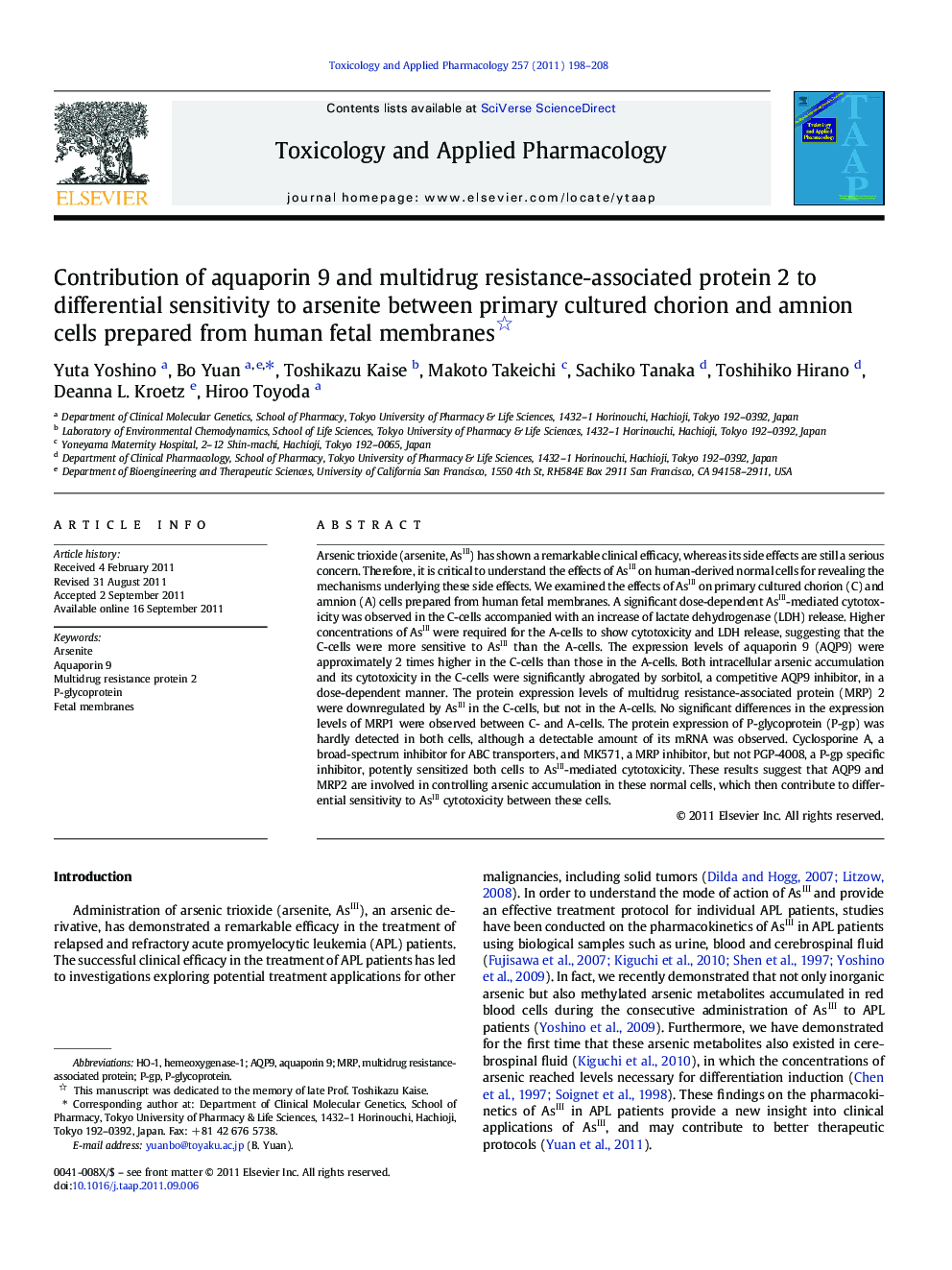| Article ID | Journal | Published Year | Pages | File Type |
|---|---|---|---|---|
| 2569747 | Toxicology and Applied Pharmacology | 2011 | 11 Pages |
Arsenic trioxide (arsenite, AsIII) has shown a remarkable clinical efficacy, whereas its side effects are still a serious concern. Therefore, it is critical to understand the effects of AsIII on human-derived normal cells for revealing the mechanisms underlying these side effects. We examined the effects of AsIII on primary cultured chorion (C) and amnion (A) cells prepared from human fetal membranes. A significant dose-dependent AsIII-mediated cytotoxicity was observed in the C-cells accompanied with an increase of lactate dehydrogenase (LDH) release. Higher concentrations of AsIII were required for the A-cells to show cytotoxicity and LDH release, suggesting that the C-cells were more sensitive to AsIII than the A-cells. The expression levels of aquaporin 9 (AQP9) were approximately 2 times higher in the C-cells than those in the A-cells. Both intracellular arsenic accumulation and its cytotoxicity in the C-cells were significantly abrogated by sorbitol, a competitive AQP9 inhibitor, in a dose-dependent manner. The protein expression levels of multidrug resistance-associated protein (MRP) 2 were downregulated by AsIII in the C-cells, but not in the A-cells. No significant differences in the expression levels of MRP1 were observed between C- and A-cells. The protein expression of P-glycoprotein (P-gp) was hardly detected in both cells, although a detectable amount of its mRNA was observed. Cyclosporine A, a broad-spectrum inhibitor for ABC transporters, and MK571, a MRP inhibitor, but not PGP-4008, a P-gp specific inhibitor, potently sensitized both cells to AsIII-mediated cytotoxicity. These results suggest that AQP9 and MRP2 are involved in controlling arsenic accumulation in these normal cells, which then contribute to differential sensitivity to AsIII cytotoxicity between these cells.
► Examination of effect of AsIII on primary cultured chorion (C) and amnion (A) cells. ► Dose-dependent AsIII-mediated cytotoxicity in C-cells, not in A-cells. ► Intracellular arsenic accumulation and cytotoxicity regulated by AQP9 and ABCC2. ► Prediction of AsIII side effects by monitoring these transporters.
